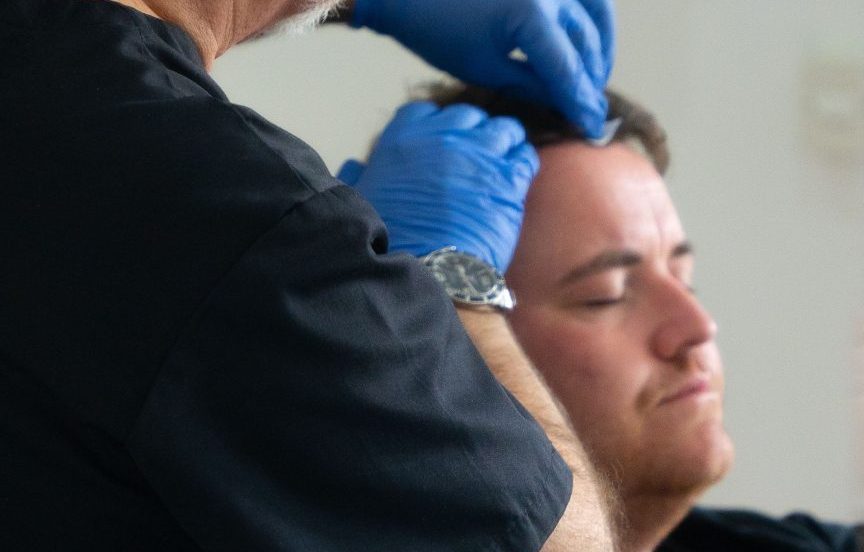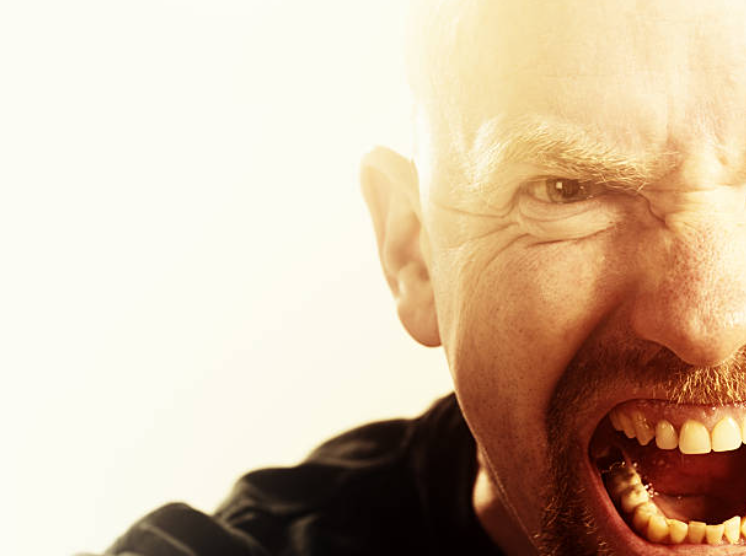
The Psychological Effects of Hair Loss
The Psychological Effects of Hair Loss

Explore the psychological effects of hair loss and discover ways to cope, rebuild confidence, and find effective solutions
Imagine looking in the mirror one morning and noticing more hair on your brush than usual. How do you feel? For many, hair loss triggers a mix of emotions—frustration, embarrassment, or even fear. Have you ever wondered why something seemingly simple as hair has such power over our emotions?
Hair is more than a biological feature; it’s deeply intertwined with identity and self-expression. While hair loss may not pose a serious health risk, its impact on mental well-being can be profound. Did you know the psychological effects of hair loss can lead to significant emotional distress? People often struggle with anxiety, reduced self-esteem, and even depression.
Now, here’s the surprising part: the extent of hair loss doesn’t always match the level of emotional impact. Someone with mild thinning may feel as affected as someone with complete hair loss. Why? Because it’s personal, and the sociological significance of hair varies from individual to individual.
That’s why treating hair loss requires a customized approach. Addressing physical and psychological aspects is crucial to helping patients regain their hair, confidence, and emotional well-being. Have you faced or witnessed such challenges? Let’s dive deeper into this topic and explore solutions together. Shall we?
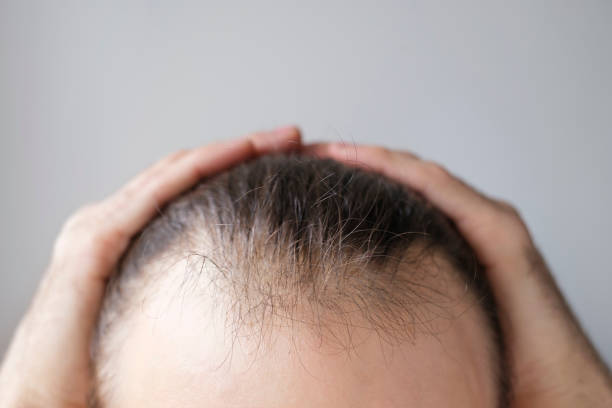
What is Hair Loss
Hair loss is a condition characterised by partial or total hair loss. It may affect the scalp or any other area of the body. Individuals are said to have it in common.
Alopecia areata, a known condition in which the immune system mistakenly attacks and targets the hair follicles, genetics, medication side effects (such as antidepressants), hormonal changes, stress, nutritional deficiencies (such as vitamin B2), and certain lifestyle choices (such as smoking, excessive use of chemical-laden hair care products, etc.) can all contribute to hair loss.
Bald patches, receding hairlines, thinning hair, and total baldness are some of the ways that hair loss can appear. Hair loss can significantly affect a person’s overall health, self-esteem, and attractiveness. Let us now check into the details of the emotional effects of hair loss.
The Emotional Impact of Hair Loss
Hair loss is a voyage of emotions and a profound metamorphosis of the self that goes beyond simple physical change. There are numerous emotional complexities to this experience:
As we deal with hair loss, we lose more than just our hair; it’s a part of who we are and what has happened to us. It is comparable to grieving for our past selves, admitting that a core component of our identity is disappearing. As we struggle with how we look, we may experience a deep sense of loss and feelings ranging from grief to nostalgia.
Hair loss may severely harm one’s self-esteem. It can undermine our self-esteem, plant the seeds of uneasiness, and increase self-doubt. We could begin to doubt our value and beauty when we see our hair thinning or falling out. Anxiety arises from the mirror, and we feel as though the outside world is brutally evaluating us. This inner battle can be unrelenting and unexpectedly impact our sense of ourselves.
Hair loss impacts our social interactions, personal connections, and the individual. As we struggle with our changing appearance, social relations may change. Although relatives and friends may give well-meaning counsel, it occasionally feels like unwelcome attention. We could distance ourselves from social settings, steering clear of get-togethers or activities where our hair loss would be more obvious. The emotional toll of managing these connections can greatly affect our general health.
A rollercoaster of emotions can accompany hair loss. But do not confront it alone. Seek psychological assistance to overcome the obstacles associated with hair loss. Therapy can help you develop new perspectives, coping mechanisms, and resilience by sharing your ideas and feelings in a safe environment. You can lay the groundwork for your emotional health through therapy while confidently facing your hair loss journey.

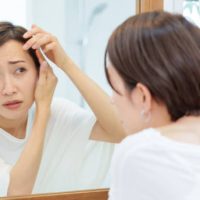
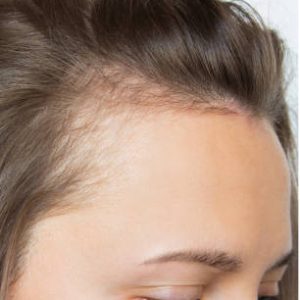
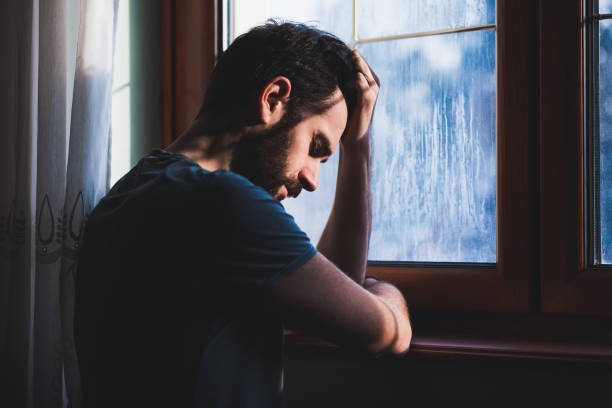
Psychological Effects of Hair Loss Across Different Age Groups
Hair loss affects different age groups in different ways. This is because each group views hair loss differently.
Let us focus on the psychological effects of hair loss across age groups.
1. Hair Loss in Teenagers and Young Adults
Most people will lose part of their hair throughout their lifetimes. Less frequently, people begin to notice hair loss as teenagers, but most first notice it as adults.
Hair loss can be challenging for everyone, but particularly for younger people. Its impact on self-esteem can be profound.
Some of the major causes of hair loss in teenagers and young adults include:
- Genetics
Androgenetic alopecia, also popularly known as male- or female-pattern baldness, is a genetic hair loss condition with a predictable pattern. It often begins with hairline recession and crown balding in men, while women typically experience thinning along the hair part. The likelihood of developing this condition increases if close family members are affected, and it can start as early as adolescence. - Alopecia Areata
The immune system assaults hair follicles in alopecia areata, an autoimmune illness that causes patchy hair loss on the scalp, eyebrows, eyelashes, or body. It affects around 2% of the population, often developing before age 30 and sometimes beginning in childhood. Treatment outcomes vary, but hair may regrow once the condition is managed. - Malnutrition
Hair loss can result from malnutrition due to imbalances or nutrient deficiencies, such as vitamins A, C, D, and E, biotin, iron, and zinc. Causes may include inadequate food access, eating disorders, or digestive conditions. Correcting these deficiencies through a balanced diet can help restore hair health. - Thyroid Conditions
Thyroid disorders, such as hypothyroidism or hyperthyroidism, can lead to diffuse hair thinning across the scalp. Severe or prolonged thyroid disease is often linked to hair loss, which typically regrows after proper hormone treatment. - Lupus
Lupus, an autoimmune condition, may cause gradual hair thinning alongside symptoms like fatigue, joint pain, and skin rashes. Depending on the severity of the disease and follicle damage, hair loss may not always be reversible. - Polycystic Ovary Syndrome (PCOS)
PCOS causes elevated androgen levels in women, leading to symptoms like acne, menstrual irregularities, and hair thinning. Balancing hormones through medical treatment may help restore hair growth. - Medications and Treatments
Certain medications, including chemotherapy, blood pressure drugs, and antidepressants, can trigger hair loss. Hair usually regrows once the medication is stopped or replaced under medical guidance. - Hair Treatments and Styling
Frequent chemical treatments, excessive heat, or chlorine exposure can weaken hair, causing breakage rather than permanent loss. Avoiding harsh treatments and using protective care can allow hair to recover naturally.
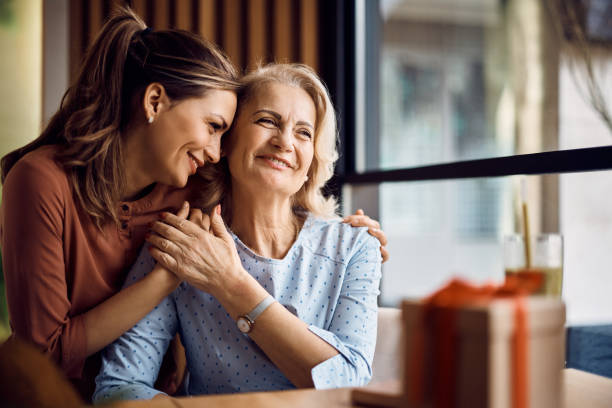
2. Middle-Aged Adults and the Sense of Ageing
Middle-aged adults are sensitive to signs of aging that show their struggles with age. Hair loss often feels like a betrayal of youth for them. How do they handle the psychological turmoil of hair loss?
- Exploring Hair Restoration Solutions
Many middle-aged adults use medical or cosmetic treatments, such as hair transplants, medication, or wigs, to address hair loss. These solutions help restore their appearance, improve self-esteem, and reduce feelings of aging-related vulnerability. - Building Emotional Resilience Through Self-Acceptance
For some, accepting hair loss as a natural part of ageing becomes a powerful coping mechanism. They reclaim their confidence despite physical changes by focusing on their overall well-being and shifting their priorities toward health, relationships, and personal growth. - Leaning on Social and Professional Support
Support from family, friends, or therapists can make a significant difference. Sharing experiences with others, joining support groups, or seeking counseling helps middle-aged adults process the emotional toll of hair loss while feeling understood and less isolated.
3. Seniors and Coping Mechanisms
What is the common sign of aging? A quick answer could be wrinkles, which result from aging skin. Elderly patients frequently complain of hair loss, which dermatologists find challenging because it might be linked to various disorders that impact patients’ quality of life.
The statistics show that male and female balding rates are projected to be 53% and 37%, respectively, beyond age 65. Hair loss impacts both sexes as they age. How do Seniors cope with the effects of hair loss on their psychology?
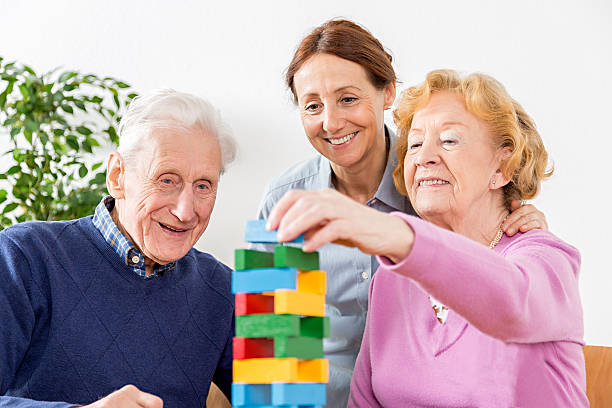
- Embracing Age with Acceptance and Gratitude
For many seniors, hair loss becomes easier to accept as a natural part of ageing. Rather than dwelling on their physical appearance, they often focus on the positives in their lives, such as health, family, and accomplishments. This perspective helps reduce thepsychological impact of hair loss. - Connecting with Supportive Communities
Seniors often find comfort in social connections, whether with peers who share similar experiences or family members who provide reassurance. Discussing hair loss openly in support groups or casual conversations fosters a sense of belonging and reduces feelings of isolation. - Reinventing Personal Style
Rather than viewing hair loss as a limitation, many seniors use it as an opportunity to embrace new styles. Some experiment with hats, scarves, or even bold haircuts, celebrating their individuality and expressing confidence despite changes in their appearance.
The Impact of Hair Loss on Relationships and Social Life
he impact of hair loss on interpersonal interactions can be unexpected and profound. It affects how we look and how confident and self-assured we are. Understanding how hair loss might affect our relationships with others is crucial, as it can be a sensitive subject for many people.
How does hair loss affect relationships? Let’s dive into the details.
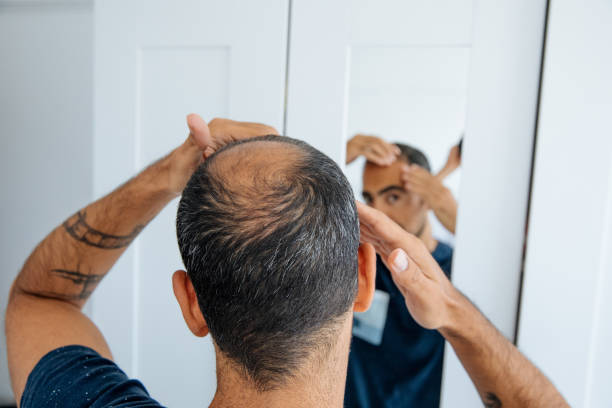
1. Low Self Esteem Due to Hair Loss
Hair loss can significantly impact personal relationships by affecting self-esteem, intimacy, communication, trust, and emotional well-being. It often causes individuals to feel less attractive, leading to insecurity and reduced confidence. These feelings can strain interactions with partners, family, and friends.
In romantic relationships, hair loss may lead to intimacy issues as individuals feel self-conscious and less desirable. This can create barriers to closeness and sexual confidence, resulting in dissatisfaction within the relationship. A lack of communication about these feelings can exacerbate the problem, causing misunderstandings and emotional distance.
Trust can also be affected, as some partners may struggle with the changes in appearance, leading to feelings of insecurity or betrayal. Addressing these emotions openly is essential for rebuilding trust and maintaining a strong bond.
Support from loved ones is vital in helping individuals cope with the emotional challenges of hair loss. Reassurance, empathy, and positive reinforcement can boost self-esteem and foster stronger connections. By maintaining open communication and showing understanding, relationships can overcome the challenges brought by hair loss, preserving intimacy and emotional closeness.
2. Loss of Trust in Relationships
Hair loss can lead to loss of trust in relationships, as changes in appearance may leave individuals feeling insecure or deceived. The significant transformation caused by hair loss can challenge both the person experiencing it and their partner, creating uncertainty and doubt about attraction and commitment.
Partners may feel surprised or unsettled by the sudden change, which could lead to feelings of betrayal if the transformation was unexpected or perceived as hidden. This emotional response can create a rift, making the individual with hair loss question the depth of their partner’s love and whether it is tied to physical appearance.
The loss of trust can strain overall communication within the relationship. Those experiencing hair loss might hesitate to share their vulnerabilities, fearing judgment or rejection. This silence can further widen the gap between partners, complicating efforts to navigate the emotional toll of hair loss.
Rebuilding trust requires open and honest dialogue. Partners must express their feelings while fostering empathy and understanding. It is vital to reassure the individual with hair loss that their worth extends beyond their appearance.
Couples can address these challenges through mutual support, open conversations, and encouragement, restoring trust and strengthening their relationship.
3.Communication Breakdown
Hair loss can lead to a communication breakdown as individuals may struggle to express their emotions about their changing appearance. The emotional journey of losing hair often extends beyond physical loss, affecting one’s sense of identity and triggering feelings of insecurity, embarrassment, and shame.
These intense emotions can make sharing concerns with loved ones challenging, creating relationship barriers. Fear of judgment or rejection may further prevent open discussions, as individuals worry about being seen as less attractive or desirable.
The inability to communicate openly can lead to misunderstandings and emotional distance between partners, family, or friends. Over time, this silence can cause feelings of isolation, leaving the person with hair loss to cope alone without the necessary support.
To prevent this, loved ones must foster a safe and supportive environment for honest conversations. Active listening, empathy, and reassurance can help individuals feel understood and less alone in their experience.
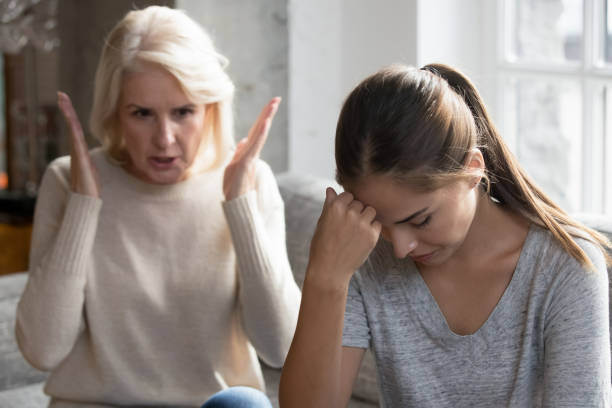
Open communication strengthens relationships, allowing both parties to address emotions and explore solutions. Couples and families can navigate hair loss challenges by addressing these barriers while deepening their connection.
4. Effects on Sexual Confidence
Hair loss can significantly affect sexual confidence, influencing desire, performance, and overall relationship satisfaction. Hair is closely linked to self-esteem and attractiveness for many, so its loss often leads to self-consciousness and insecurity. These feelings can make it challenging to feel confident or desirable in intimate situations, reducing sexual desire and willingness to take part in sexual activities.
Physical changes like thinning hair or a receding hairline may heighten worries about a partner’s perception and continued attraction, further affecting performance and satisfaction. The emotional toll of these concerns can create additional barriers to intimacy.
However, the impact of hair loss on sexual confidence varies. While some navigate these challenges through open communication and mutual support, others may struggle more deeply. Empathy and understanding from both partners are essential to maintaining intimacy and connection.
Addressing these concerns can help couples foster a stronger bond and find ways to adapt and sustain their relationship despite hair loss challenges.
5.Increased Social Anxiety
Hair loss can lead to social anxiety, causing individuals to avoid social interactions and isolate themselves, which can strain relationships. Concerns about their appearance may make them self-conscious and fearful of judgment or rejection from others. As a result, they might avoid public outings or social events, worrying that their hair loss will attract negative attention or criticism.
This avoidance can weaken connections with friends and family, limiting opportunities to strengthen bonds or build new relationships. Over time, isolation can lead to feelings of loneliness, disconnection, and a lack of intimacy with loved ones. The cycle of avoiding social situations often intensifies social anxiety, eroding self-esteem and contributing to depression.
Support from loved ones plays a critical role in easing these struggles. By fostering an accepting and empathetic environment, family and friends can encourage individuals to participate in social activities and provide reassurance about their value beyond appearance.
Professional help can also be invaluable for managing severe social anxiety. Therapists offer techniques to build self-confidence and address anxiety symptoms. Support groups or online community groups for individuals with hair loss can provide understanding, connection, and encouragement. These resources help individuals feel less alone and better equipped to navigate the challenges of social anxiety.
Coping Strategies and Psychological Support After Hair Loss
How do you cope with the psychological effects of hair loss? You are not alone. There are ways to cope and feel better about yourself successfully. Here they are:
1. dentify a Community
Establishing a connection with people who share your experience may be incredibly uplifting. Don’t forget that hair loss is a very prevalent problem. Keep this in mind frequently. Finding a community can make you feel stronger and less alone. You can hear from people going through similar struggles and share your experiences by joining an online support group.
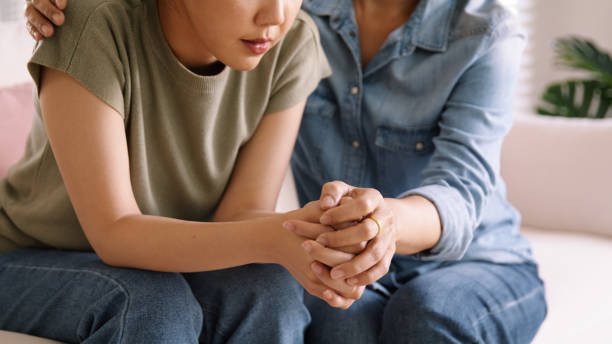
2. Cultivate Self-Compassion
Practicing self-compassion involves being kind and warm to yourself during hard moments. Recognise that hair loss is a common phenomena many people face and that your hair or appearance does not determine your worth.
3. Control Your Worries
To begin, determine what causes you to worry about hair loss. It could be specific social settings, the sight of your hairbrush, or future hair loss worries.
For the management of anxiety and concern, cognitive behavioural therapy, or CBT, is helpful. This type of treatment aims to recognise and address harmful mental habits. Reduce excessive anxiety about hair loss by learning CBT techniques.

4. Use Medications
Which medications can assist you in fighting hair loss?
- Minoxidil
Minoxidil is most commonly used as an over-the-counter topical medication to promote hair growth and reduce hair loss in both males and females.Additionally, oral minoxidil has shown promise as a treatment for hair loss. In contrast to topical minoxidil, given directly to the scalp, oral minoxidil stimulates hair growth by dilating blood vessels and boosting blood flow to the scalp.
Combining a hair transplant with oral minoxidil therapy may increase overall hair density in people who have experienced more severe hair loss.
- Finasteride
Finasteride is an oral prescription drug, mostly for males, that lowers hair loss by inhibiting the hormone that causes hair follicle shrinkage.Younger patients who might not yet qualify for hair transplantation benefit from it the most. The drug has been demonstrated to be a beneficial supplement to surgical hair restoration for several reasons.
It stabilises or regrows hair loss in the crown, where hair transplantation may not always be recommended due to a lack of donor’s hair. It is less effective in the front portion of the scalp, where surgical hair restoration can provide the greatest cosmetic improvement. Are you aware that in the US, an estimated 1 million men take the medication daily? The medication is known to increase hair count in the long run over 12 months of taking it.
5.Modifications to Lifestyle
Changing your lifestyle can greatly impact your hair’s condition and even slow down the rate at which hair loss occurs.
- Nutritious diet: Ensure you eat many important nutrients, such as vitamins A, D, and E, iron, and zinc. Although eating a nutritious diet is essential for gorgeous hair, it might not be enough to prevent hormonal or genetic hair loss.
- Control of stress. Stress reduction techniques like yoga, meditation, and consistent exercise can help reduce hair loss. Telogen effluvium, a disorder in which hair follicles prematurely enter the resting phase, is one ailment that can result from prolonged stress. Although it may not impact hair loss from other sources, stress management can greatly prevent hair loss in these situations.
- Taking good care of your hair. Avoid overheating your hair, use mild washes, and use fewer chemical treatments. Although maintaining healthy hair requires proper hair care habits, these practices may not affect hair loss brought on by illnesses, genetics, or hormonal fluctuations.
6. Consider Different Approaches to Hair Loss
Investigating alternative options for treating hair loss can be revolutionary. For Instance, hair extensions and hairpieces are two well-liked options that provide people with either short-term or long-term solutions to hair loss.
- Hairpieces
A hairpiece—also referred to as a wig or hair system—is a flexible choice that can drastically alter one’s appearance. Whether a person is experiencing partial or total hair loss, hairpieces are available in various designs, hues, and textures to accommodate personal tastes. They produce a realistic and natural-looking effect and can be manufactured from natural or synthetic hair. Wearing a hairpiece can make people feel more confident and good about themselves. Individuals can regain control of their looks without worrying about their natural hair and accept various hairstyles. Additionally, hairpieces are a straightforward way to manage hair loss because they are simple to style, wash, and maintain. - Hair Extensions
Hair extensions are yet another alternate method of treating hair loss. Attached to the natural hair, these hair strands provide its thickness, volume, and length. Natural or synthetic hair can be used to create hair extensions, which are available in a variety of hues and textures to match the wearer’s natural hair.Because they offer an immediate makeover, hair extensions can help people struggling with thinning hair or hair loss. They can be fashioned similarly to genuine hair and provide a natural-looking outcome. Hair extensions can increase self-confidence, enabling people to try various haircuts and feel more at ease with their appearance.
- Special Considerations
There are a few things to consider while considering alternative hair loss management strategies. First, people should seek professional advice to identify the best choice for their unique requirements and preferences. When selecting a hairpiece or extension, they can advise on the appropriate colour, texture, and style.Furthermore, people should consider the upkeep needed for these substitute options. For hairpieces and hair extensions to stay in good condition, frequent cleaning, style, and maintenance may be necessary. Following the manufacturer’s instructions is crucial, as is getting expert assistance when necessary.
People can generally temporarily or permanently manage hair loss by looking at alternate options like hairpieces or extensions. These choices provide a means of regaining self-assurance, embracing various haircuts, and feeling at ease. Through careful evaluation of the available options and professional advice, people can identify the best option for their circumstances and manage the psychological effects of hair loss.
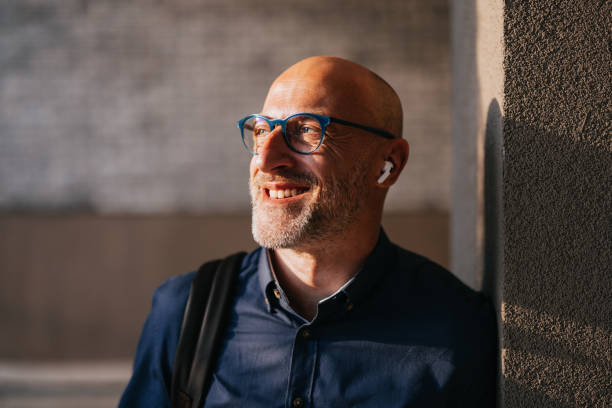
7. Accepting and Living With Baldness
Accepting their baldness can be a strong and inspiring decision for people losing their hair. By accepting their baldness rather than seeing it as bad, people can redefine their identities and accept their attractiveness. Regardless of social conventions or expectations, it is a means of embracing and enjoying who you are.
Accepting their baldness and escaping the limitations of conventional beauty standards can give people new independence and confidence. Because it is a personal decision, people can concentrate on their inner attributes and abilities instead of their outward looks.
Adopting baldness can also be interpreted as a declaration of love and acceptance for oneself. “This is who I am, and I am proud of it,” it represents. It can encourage people to value their individuality and question conventional standards of attractiveness.
8. Hair Transplant Surgery
Those looking for a more long-term remedy to hair loss may consider hair transplant surgery. Hair follicles are moved to balding or thinning places due to this surgical technique. Numerous approaches are available, each with advantages and things to keep in mind:
- FUT stands for follicular unit transplantation. Individual follicular units are transplanted to parts of the scalp that are thinning after a strip of the scalp is removed.
- Follicular unit extraction (FUE).Compared to FUT, there is less scarring because individual hair follicles are removed and transplanted.
- Laser therapy. Low-level laser therapy can stimulate hair growth for both men and women. It’s a non-invasive option that can be used alongside other treatments.
Frequently Asked Question
- Which nutrients are necessary for good hair maintenance?
Eating a balanced diet is one of the most crucial elements in preserving healthy hair. Incorporate foods high in iron, such as spinach, lean meat, beans, and iron-fortified cereals, particularly if you are premenopausal or have a history of blood loss. Foods high in zinc, like meat, fish, seeds, and nuts, are also good for you.
Protein malnutrition can cause hair loss, so getting enough protein is important. If you live in a region with little sunlight, get enough sun exposure, or consider taking vitamin D supplements.

2. Should I use caution when taking hair growth supplements?
Yes, you need to exercise caution. See a doctor before beginning any supplement regimen. Use folic acid and biotin only if there is a confirmed deficiency, even though they are frequently promoted for hair development. Iron, zinc, vitamin A, and selenium supplements used in excess might have negative side effects, including hair loss. Eating too many raw egg whites can also result in a lack of biotin.
3. Does drinking alcohol impact the health of your hair?
Alcohol use can indeed have a detrimental effect on hair health. It may result in insufficiencies in vital nutrients necessary for healthy hair, including folic acid, zinc, and niacin. Reducing alcohol consumption can support improved hair health and help maintain these essential nutrients.
4. Are there any natural remedies for hair loss that work well?
There is hope for hair loss with several natural remedies. Grain-based azelaic acid has antiandrogen properties. Pumpkin seed oil has been demonstrated to ameliorate androgenetic alopecia. It is well known that tea tree and rosemary oil are good for hair health. In patients with alopecia areata, evening primrose, and other essential oils demonstrated notable benefits. However, further investigation is required to provide definitive proof.
In Summary: Treat your Hair Loss At Merchant City Medical Group
Addressing the psychological effects of hair loss necessitates a multidimensional strategy to promote self-perception and emotional wellness. Developing self-compassion and acknowledging that hair loss is a common problem is critical. Hair loss is more than just a physical change—it can deeply affect emotional well-being, leading to anxiety, low self-esteem, and even depression. The impact varies from person to person, regardless of the severity of hair loss, due to its personal and societal significance. Merchant City Medical Group offers tailored hair loss treatments to address physical and emotional effects, helping you regain confidence. Book your free consultation today and use our flexible payment plans to start your journey to restored hair and self-assurance.
Excellence Record
- 30+ Years of combined experience
- 10 + Experts
- 1000 + Satisfied Patients





